- Home
- Brian S. Wheeler
Old Hunters on the New Wild
Old Hunters on the New Wild Read online
Old Hunters on the New Wild
Brian S. Wheeler
Flatland Fiction thanks you for your purchase of this ebook. This ebook remains the copyrighted property of the author and may not be reproduced, scanned, or distributed for any commercial or non-commercial use without permission from the author. Quotes used in reviews are the exception. No alteration of content is allowed. If you enjoy this ebook, Flatland Fiction encourages you to send us a review at [email protected]. Unless otherwise instructed, Flatland Fiction reserves the right to post such reviews online.
Your support and respect for the property of this author is appreciated.
This book is a work of fiction and any resemblance to persons, living or dead, or places, events or locales is purely coincidental. The characters are productions of the author’s imagination and used fictitiously.
Copyright © 2017 by Brian S. Wheeler
For Kate.
If you enjoy this story, please consider purchasing one of the following novels available at your favorite distributor of ebooks. Flatland Fiction welcomes your feedback at [email protected].
Mr. Hancock’s Signature
The dead walk in Monteray. The corpse of a nearly forgotten farmer named Hancock arrives via train. Ian Washington remembers Mr. Hancock and vows to return the body home. Yet Mr. Hancock's body will not rest while Ian works to reopen a cemetery, and the corpse found each morning upon the doorstep forces the town to choose between the isolation of their fear or the hope of their fellowship.
The Sisters Will Dance
Blaine Woosely claws his way back to the living. He has cleaned his blood of his addiction, and an unexpected, family farm home rewards his efforts. Only the country acres isolate Blaine when a sharp-toothed monster hunts to bring Blaine back to the dark. The sad history of Blaine's blood brings magic to the country home's new master, but in the end, only Blaine himself can break his chains.
Fallen Stardust
A boy, an outcast and an alien must find salvation in a world of ruin. Samuel must find a medicine to cure the fever ravaging his village. Markus must find the motive that murdered those he loved. And an angel must find a future in a city crumbled into debris. But something lurks beneath the wasted world, and waking it may doom what little of humanity survives.
The Light Floats Slowly
Hugh Simms looks to find hope amid the stars when he fails to find any on Earth. Heartbroken by the loss of his only love, Hugh loads his great spaceship with ash and glass before launching his Starchaser into the cosmos. Miraculously, that spaceship finds an alien civilization in the vast dark, and Hugh might deliver that civilization the salvation he failed to deliver to the Earth.
Vanity and Stars
Rise to grasp new worlds, and fall with the tragedy of human and alien frailty. These ten stories underline the potential seeded throughout the galaxy, while never denying that humankind’s flaws will surely tarnish the stars. With the vain and the foolish, buckle into the rocket seat and hold a breath while the cosmos unfolds.
Old Hunters on the New Wild
Contents
Chapter 1 – Children and Implications
Chapter 2 – A Last Great One
Chapter 3 – The Younger Generation
Chapter 4 – A Missed Shot
Chapter 5 – Savanna Love
Chapter 6 – Repentance
Chapter 7 – Clones Who Cry
Chapter 8 – Punishments of the First Creation
Chapter 9 – A Lover’s Vow
Chapter 10 – The Strangest Creature
Chapter 11 – Finding New Hunters
Chapter 12 – Inheritance Lost
Chapter 13 – Many Fathers
About the Writer
Other Stories at Flatland Fiction
Chapter 1 – Children and Implications…
“Don’t just stand there gaping, Jarvis. Do something, or get out of the tent. There’s not enough room and air if you’re only going to stare.”
“I don’t know what to do, Kendra.”
“This is far from the first time you stood next to a female this season.”
“And I still don’t know how to help.”
Sansa, who moaned upon the cushions stolen from the palanquins of the honored hunters, groaned and lifted her hand towards Jarvis as another of the birthing pains tightened her body. Kendra couldn’t fairly fault Jarvis for failing to better understand the role Sansa expected him to play during the delivery of her baby. She couldn’t guess what duty Sansa expected their community’s most respected male hunting guide to play within Sansa’s birthing tent. If she was honest with herself, Kendra realized she little understood the role she played in the delivery, no matter that Kendra had done what she could to help in the birthing of each child who came that season to her community.
Birth, with all its suffering and joy, was a new and strange ceremony in Kendra’s community of clones. None of the mothers Kendra tended that season had been warned of the pain that kept company with the birthing, nor had any of those mothers been warned of the consequences that would come to them that season after inviting males into their beds. For some reason Kendra couldn’t understand, the genetic makers gave the females of Kendra’s community the ability to bear children, and though she had comforted each mother during her pain, Kendra felt powerless to decide if the makers had been loving or cruel when granting the power of procreation to her clone sisters.
“Breathe, Sansa. Breath.”
Kendra smiled as she watched Jarvis take Sansa’s hand. She couldn’t resist a glance at the pair of blue rings that circled Jarvis’ right eye. Digits of zeros and ones composed the outer ring, while a series of thin and thick hashes formed a circular bar code in the inner ring. Those blue rings tattooed upon Jarvis’ flesh marked him as a clone, as a semi-human male hatched from a test tube rather than born from the womb, as a being who simply awoke one morning as a fully-developed adult, immediately ready to shoulder whatever responsibilities the makers wove Jarvis’ bones and muscle to complete. Kendra couldn’t read the intricate language contained in those blue bands, only the makers of clone kind possessed such power, but she still peeked at Jarvis’ rings to see if she might glimpse some clue or symbol in that male’s branding that might explain why Kendra’s friend Sansa gasped and cried as the birthing wracked her body. Did the makers change Jarvis’ body so that Sansa conceived child after sharing the comforts of her tent with that guide? Or was the change to be found in Sansa’s body, so that she might’ve conceived with any of the males who felt the comforts of Sansa’s tent? Clones freely loved one another – though Kendra suspected that custom would surely change with the arrival of children – and so how could Kendra know if Javis was indeed the father of Sansa’s child? Kendra couldn’t even say if a clone had any right to accept such a human title. The world grew confusing to Kendra as Sansa growled and groaned.
“It won’t be much longer,” Kendra promised her friend. “Catch your breath and ready yourself for another push.”
Kendra supposed that human women might consider birthing a very natural part of life, but delivering babies seemed to Kendra to be most dangerous. There was so much blood and pain. She would never have guessed that human men and women, who knew such lives of comfort compared to those known by clone kind, came into the world with so much anguish. And babies born from the womb remained so helpless. Kendra feared for every child she helped pull into her community that season. Death seemed very interested in witnessing every birth, and Kendra knew enough about death to suspect that monster was very tempted to reach out and grasp mother and child with its infectious claws. Life among the savanna’s tall grasses, life amid the creatures the makers stirred together in
their genetic cauldrons, taught Kendra that hunger followed every breath. Every babe was another mouth to feed, another reason why the clones must pray that the men and women who arrived on the expedition would find the courage needed to pull the triggers of their weapons and secure the sustenance needed by the growling stomachs of the clones. Perhaps the genetic makers imparted clone females with the ability to conceive so that clone kind became yet more dependent upon original woman and man. Perhaps all those children Kendra helped pull into the world were just another kind of shackle to lock upon the clones.
“Say something, Jarvis. Let Sansa hear your voice as she gathers here strength for another push.”
Kendra wasn’t surprised Sansa requested Jarvis’ presence during her birthing. Sansa hadn’t been the only clone female to ask for that guide’s company. Jarvis’ shoulders seemed wider than those of any of his male peers, no matter how it was said that the makers strove to make one clone equal in body and mind to any other clone. Yet Jarvis was a step quicker than any of the community’s other males. He laughed a little louder and longer. And most importantly, Jarvis was the revered Wyatt Holmes’ favorite guide, so that any clone female would be proud to have Jarvis next to her while she pushed a baby into their world. Any mother might feel that Jarvis would best provide for a crying, hungry mouth, for he was the favorite clone of that human hunter who seemed to be the last man still skilled in killing upon the savanna.
“The baby is crowning, Sansa! Push as hard as you still can!”
Jarvis began singing one of their community’s favorite songs, the song that celebrated the moment a new hunter appeared upon the veld, a song chanted and stomped less and less often in Kendra’s world. Would the makers think Jarvis rebellious for singing that song as Sansa gave birth? Would the makers judge Jarvis’ song as criminal for daring to imply that a baby birthed by a clone might one day wield one of humanity’s weapons? Did the makers even know that Kendra’s ilk birthed children? Could such pain and joy be but the result of some random mutation, or of some compound that might’ve accidentally fallen into the pot while the makers stirred together the genetics of Kendra’s community? How would the makers react if they should learn of the babies that cried in Kendra’s camp? Would the makers consider those babies as human as themselves, born from the womb instead of the test tube? Would humanity then grant those babies the freedom and potential that clone kind never knew? Or would the makers instead fear such children? Would the makers move to destroy them, and would the makers destroy Kendra, and all of her clone siblings, to ensure that clones never again birthed children into the world?
Kendra shook her head and concentrated on her immediate duty. It was not her responsibility to dwell on questions beyond her understanding.
“The baby is coming, Sansa! Push! Push!”
And then Kendra held a baby in her hands. She quickly wiped the blood from the child’s face, and pinched the baby’s toe until it wailed, sucking oxygen in great gulps of loud, proud life.
“It’s a handsome male, Sansa.”
Sansa cried and pulled the baby to her breast. “A boy. Have you ever seen anything on the savanna as incredible as a boy, Jarvis?”
Jarvis grinned. Kendra worried that male’s smile might dull after standing in so many birthing tents that season, but the guide’s joy showed no sign of fading as he gripped Sansa’s hand.
“I’ve never seen anything as wonderful as a child.”
“There are no rings on his face,” Sansa sobbed with happiness. “He’s born with none of our markings. Does that mean he’s human?”
Jarvis winked. “It means he’s more human than us.”
Kendra lingered another moment in the tent. Yet she felt no need to share the occasion with Sansa and Jarvis, and she felt little need to smile. She certainly felt no need to sing. The emotion again surprised Kendra, but she couldn’t deny the envy felt within her heart. Why would such a petty sentiment visit her? The thought of growing so large and clumsy with a baby in her belly before suffering the birthing pain frightened Kendra. She thought bringing a baby into the world to be a foolish thing when human hunters the likes of Wyatt Holmes grew increasingly rare. The idea of introducing a helpless child to the savanna Kendra’s community shared with the dangerous razor boar and the splicer lynx seemed like madness. Boys and girls were such weak creatures compared to anything that might hide or lurk amid the savanna’s swaying grasses. Yet Kendra again felt that pinch of envy as she looked at a grinning Sansa. Maybe something was wrong with her, a reason why she didn’t conceive that season, though she too had shared her tent with Jarvis. Or perhaps there was nothing wrong with her at all. Regardless, Kendra felt different, and more alone following each birth she assisted.
Leaving mother and child, Kendra washed her hands in a large basin placed outside of Sansa’s tent during her delivery. Kendra stared hat her face’s reflection. Her skin was bronzed following so many days in the savanna’s sun. She held her breath, and her spirit urged the water to calm, so that she might study the reflection of those blue rings circling her eye and recognize any mark that might explain why she remained barren while the other female clones turned fertile.
But Kendra was not a genetic maker. She was not even a woman. She was only a clone. Thus, though she was very tired from helping Sansa, Kendra hustled away from her friend’s tent to complete the duties assigned to her for the preparation of the expedition’s arrival.
There was much new hunger in her community, and Kendra hoped they might find a new hunter who was capable of pulling a weapon’s trigger. For the revered Wyatt Holmes was a very old man for the savanna.
* * * * *

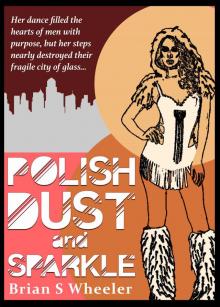 Polish, Dust and Sparkle
Polish, Dust and Sparkle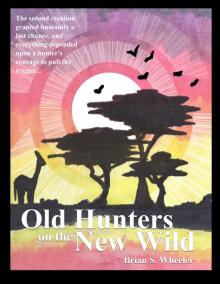 Old Hunters on the New Wild
Old Hunters on the New Wild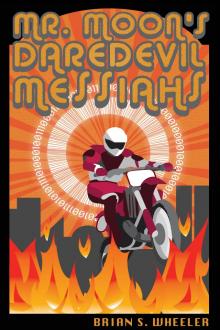 Mr. Moon's Daredevil Messiahs
Mr. Moon's Daredevil Messiahs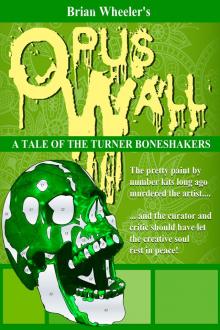 Opus Wall
Opus Wall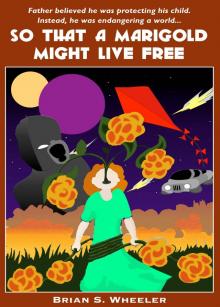 So That a Marigold Might Live Free
So That a Marigold Might Live Free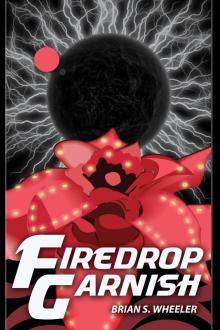 Firedrop Garnish
Firedrop Garnish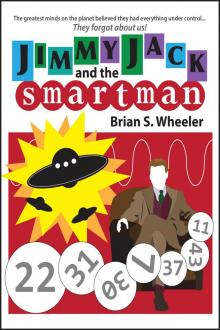 Jimmy Jack and the Smartman
Jimmy Jack and the Smartman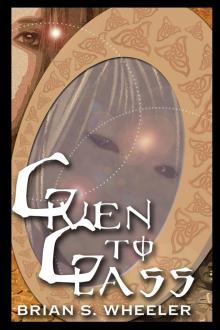 Given to Glass
Given to Glass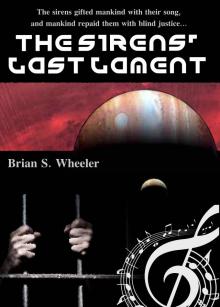 The Sirens' Last Lament
The Sirens' Last Lament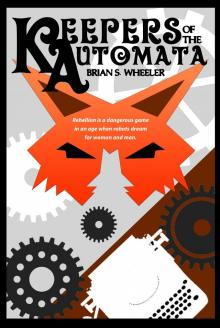 Keepers of the Automata
Keepers of the Automata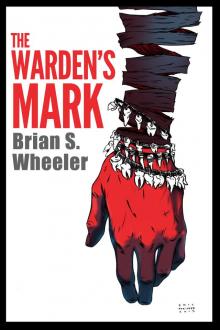 The Warden's Mark
The Warden's Mark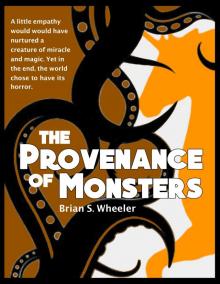 The Provenance of Monsters
The Provenance of Monsters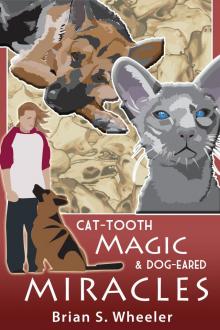 Cat-Tooth Magic and Dog-Eared Miracles
Cat-Tooth Magic and Dog-Eared Miracles Heritage and Shimmer
Heritage and Shimmer Words Burned to Flame
Words Burned to Flame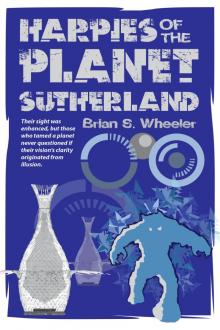 Harpies of Planet Sutherland
Harpies of Planet Sutherland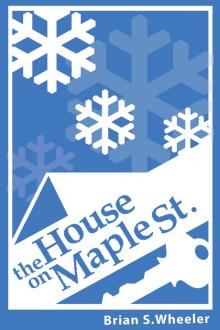 The House on Maple Street
The House on Maple Street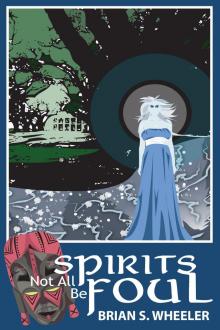 Not All Spirits Be Foul
Not All Spirits Be Foul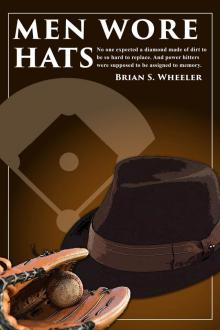 Men Wore Hats
Men Wore Hats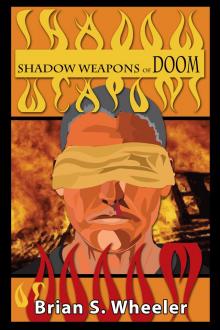 Shadow Weapons of Doom
Shadow Weapons of Doom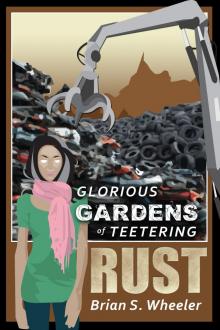 Glorious Gardens of Teetering Rust
Glorious Gardens of Teetering Rust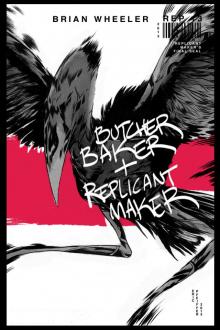 Butcher, Baker and Replicant Maker
Butcher, Baker and Replicant Maker Patriots of Griffin XIII
Patriots of Griffin XIII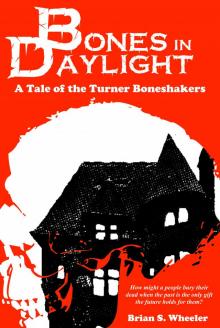 Bones in Daylight
Bones in Daylight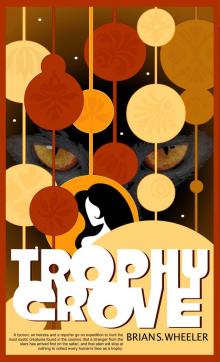 Trophy Grove
Trophy Grove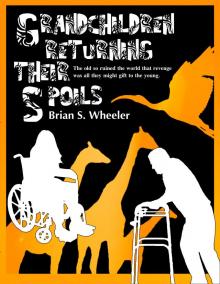 Grandchildren Returning Their Spoils
Grandchildren Returning Their Spoils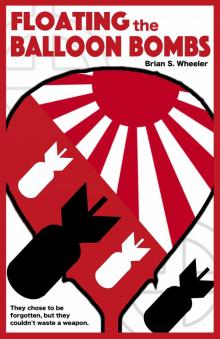 Floating the Balloon Bombs
Floating the Balloon Bombs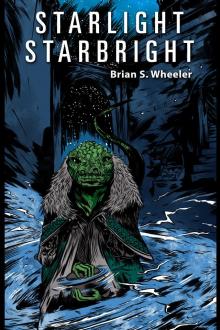 Starlight, Starbright
Starlight, Starbright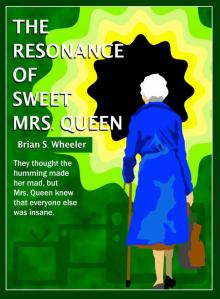 The Resonance of Sweet Mrs. Queen
The Resonance of Sweet Mrs. Queen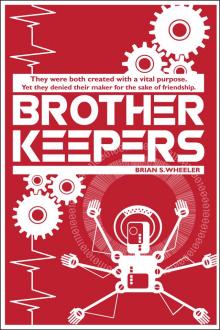 Brother Keepers
Brother Keepers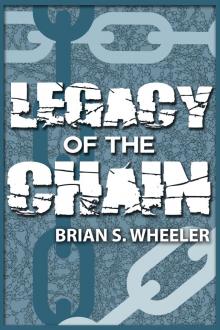 Legacy of the Chain
Legacy of the Chain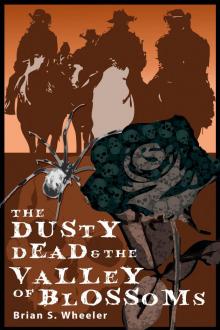 The Dusty Dead in the Valley of the Blossoms
The Dusty Dead in the Valley of the Blossoms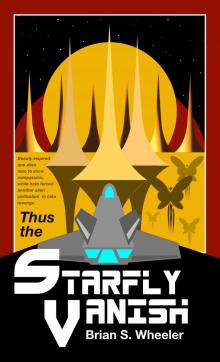 Thus the Starfly Vanish
Thus the Starfly Vanish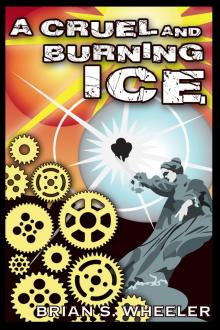 A Cruel and Burning Ice
A Cruel and Burning Ice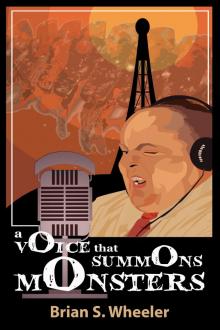 A Voice That Summons Monsters
A Voice That Summons Monsters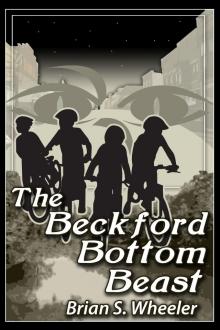 The Beckford Bottom Beast
The Beckford Bottom Beast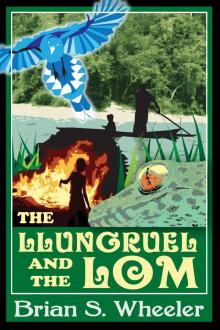 The Llungruel and the Lom
The Llungruel and the Lom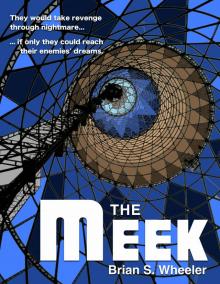 The Meek
The Meek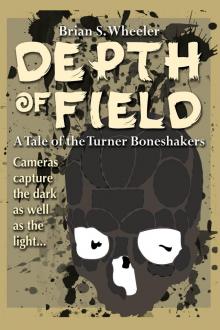 Depth of Field
Depth of Field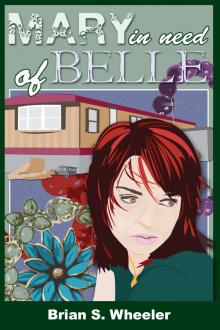 Mary, in Need of Belle
Mary, in Need of Belle Memory, Light & Medicine
Memory, Light & Medicine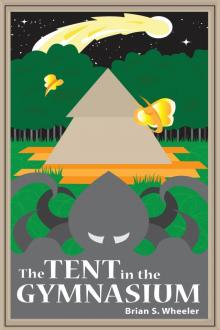 The Tent in the Gymnasium
The Tent in the Gymnasium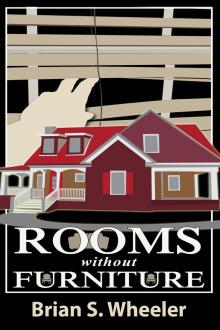 Rooms Without Furniture
Rooms Without Furniture A Handicap of Shades
A Handicap of Shades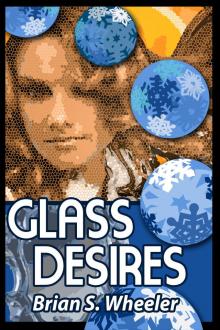 Glass Desires
Glass Desires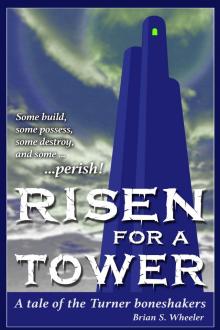 Risen for a Tower
Risen for a Tower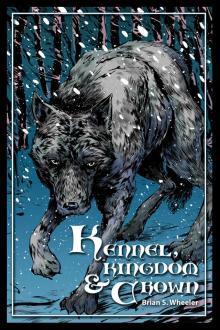 Kennel, Kingdom and Crown
Kennel, Kingdom and Crown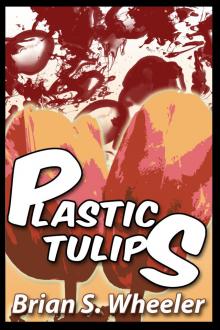 Plastic Tulips
Plastic Tulips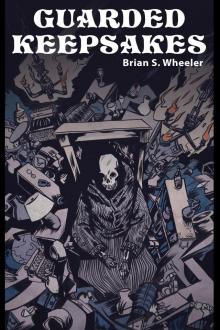 Guarded Keepsakes
Guarded Keepsakes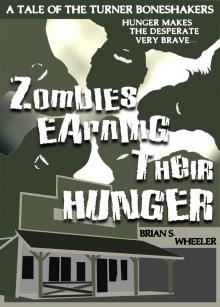 Zombies Earning Their Hunger
Zombies Earning Their Hunger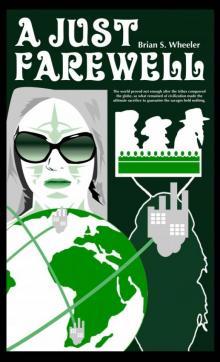 A Just Farewell
A Just Farewell